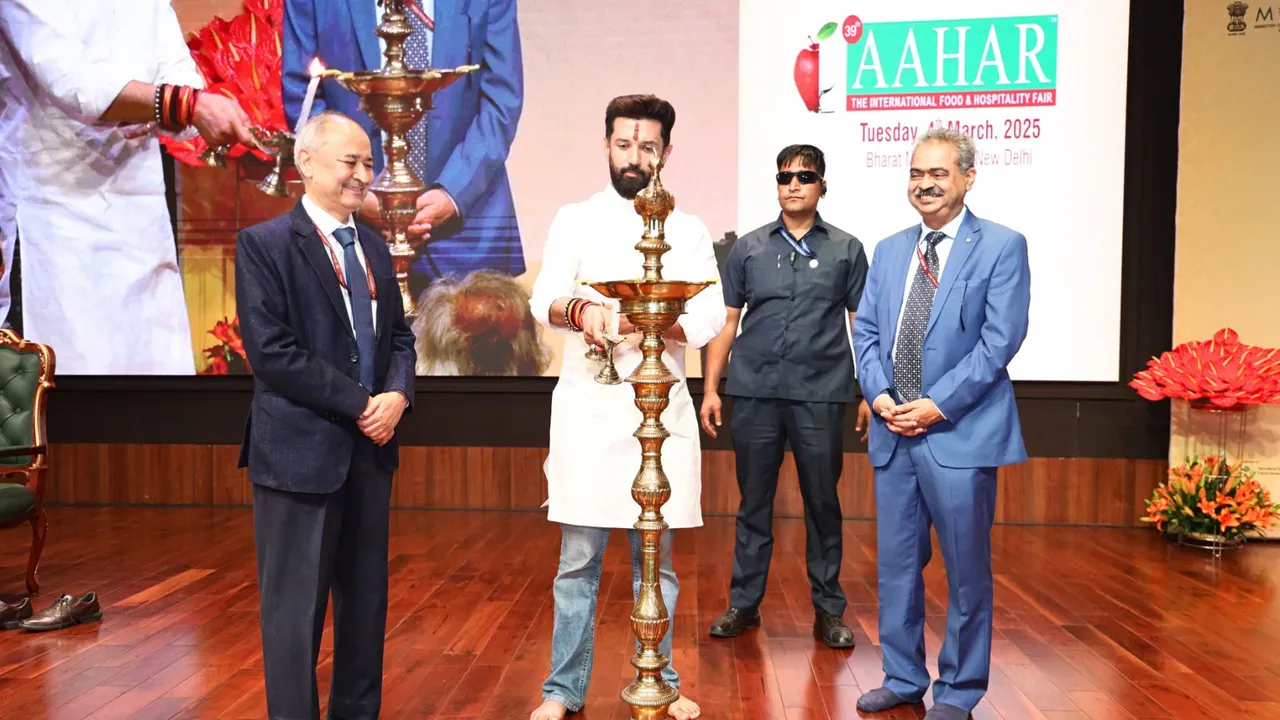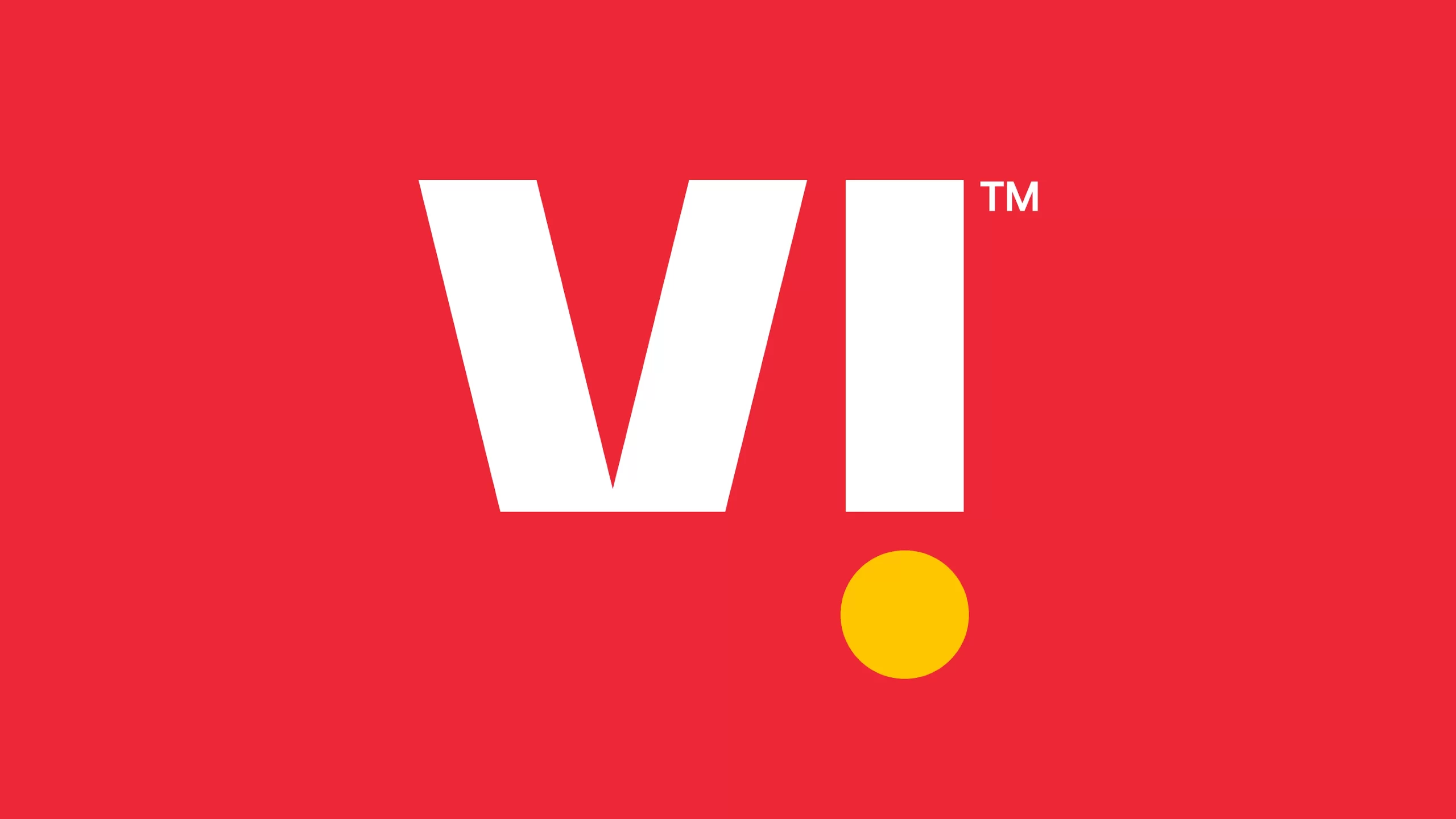Besides Advancing Food Safety and Innovation, AAHAR-2025 Wants expanding food processing so that Indian flavours reach every corner of the globe
New Delhi, NFAPost: While inaugurating the AAHAR-2025 at Bharat Mandapam Union Minister of Food Processing Industries Chirag Paswan made the government vision is clear that every dining table in the world should have at least one Made-in-India food product.
“By expanding food processing, we can ensure Indian flavors, quality, and innovation reach every corner of the globe. Farmers are the backbone of our economy, and food processing is the bridge that connects them to higher incomes & global markets. By reducing waste, enhancing value, and expanding exports, we empower our farmers like never before,” said Union Minister of Food Processing Industries Chirag Paswan.

He also pointed out that AAHAR is more than an expo and it’s a call to action. “I want industry leaders must step up by investing in cutting-edge food technology, scaling food processing & exports, strengthening farm-to-fork linkages and with all these together, we will make India a global food powerhouse,” said Union Minister of Food Processing Industries Chirag Paswan.
The Union Minister also said food security starts with food safety. Chirag Paswan highlighted the fact that MoFPI is committed to ensuring world-class standards in processing and exports. “Quality must be our identity—every Made in India product should be a mark of trust, purity, and excellence,” said Union Minister of Food Processing Industries Chirag Paswan.
https://www.youtube.com/watch?v=Qca_3IaQ4FY&t=675s
He also announced that India’s biggest global food summit, World Food India 2025, will be held from September 25-28, 2025, marking a new era for the country’s food industry on the global stage.
“The journey from AAHAR to World Food India 2025 begins today. MoFPI will host our biggest global food summit from September 25-28, 2025. I invite investors, industry leaders, and innovators to join hands in shaping the future of Indian food processing,” said Union Minister of Food Processing Industries Chirag Paswan.
Continuing the momentum of AAHAR 2025, Ministry of Food Processing Industries (MoFPI) and NIFTEM-Kundli organized a series of impactful technical sessions that brought together leading voices from government, academia, start-ups and industry to chart the future of India’s food ecosystem. Across two days of insightful discussions, experts explored innovation in food processing, machinery, packaging, safety, and regulatory frameworks.
Addressing a crucial session on “Ensuring Excellence: Food Safety, Quality, and Traceability”, MoFPI Secretary Subrata Gupta stressed the urgent need to raise awareness among farmers about the dangers of chemical contaminants and their lasting health impacts.
“It is imperative to educate our farmers on sustainable and responsible use of chemicals in agriculture, as this directly impacts the safety of the food we consume,” emphasised MoFPI Secretary Subrata Gupta.
He highlighted that while the food processing industry is rapidly adopting advanced technologies, such as rapid testing kits and digital traceability, these innovations must work in tandem with ground-level reforms to create a robust food safety ecosystem.

Commending NIFTEM-K for its leadership in driving technological progress, MoFPI Secretary Subrata Gupta remarked that “NIFTEM-K is setting benchmarks in the food industry by integrating cutting-edge innovations and rigorous quality control, ensuring that Indian consumers receive safe, high-quality food products. We must continue fostering collaborations across sectors to ensure holistic growth in food safety and processing.”
Moderating the Day 2 session, NIFTEM-K Director Harinder Singh Oberoi reinforced the importance of building a transparent, technology-driven food system.
“The future of food safety lies in harnessing emerging technologies like Blockchain, IoT, and AI to revolutionize compliance monitoring, traceability, and quality assurance,” remarked NIFTEM-K Director Harinder Singh Oberoi.
He further emphasized that continuous knowledge exchange, industry collaborations, and regulatory advancements are vital to protecting public health and building consumer trust.
Key speakers across the sessions, including experts from FSSAI, CODEX, and leading food companies, shared insights on integrating rapid food testing kits, advancing analytical methods for detecting adulteration, and addressing gaps between domestic regulations and Codex international standards.
Moderated by Dr. Jagdeep Marahar, MD, Nestlé R&D Centre, the panel discussion on “Fuelling Growth: The Future of Food Startups and Innovation” offered valuable insights into the opportunities, challenges, and emerging trends shaping the industry. The discussion underscored the importance of passion-driven entrepreneurship, strategic industry collaboration, and government support in building a thriving ecosystem for food start-ups.
Parallel to these conversations, Day 1 of AAHAR 2025 set the stage with panel discussion on “Innovations in Food Processing, Machinery and Packaging” moderated by Dr. V. Palanimuthu, Director, NIFTEM-T, delved into the transformative advancements in automated food processing, smart packaging, and sustainable machinery.
The panel explored how cutting-edge technologies can enhance efficiency, reduce waste, and improve food safety. Another session, chaired by Dr. Anandharamkrishnan, Director, CSIR-NIIST, Kerala, the session on “Regulatory Frameworks: Navigating Food Industry Compliance” addressed the complexities of India’s food regulatory landscape and shared strategies for effective compliance, the impact of recent policy updates, and the role of technology in simplifying regulatory processes.
These sessions, featuring representatives from IIT-Guwahati, Tetra Pak, IIHR Bengaluru, FSSAI, Coca-Cola India, Marico, Sickle Innovations and others, explored the synergy of automation, sustainable packaging, and digital tools to drive efficiency and safety across the food value chain.
Key Outcomes:
• Strengthened alignment of regulatory standards with global best practices.
• Strategic focus on farmer education and sustainable practices.
• Technological integration of Block chain, AI, and IoT for real-time compliance and traceability.
• Advancement in indigenous rapid food testing solutions to reduce reliance on imported kits.
• Deeper industry-regulatory collaborations to elevate food safety benchmarks.
As AAHAR 2025 progresses, MoFPI and NIFTEM-K reaffirm their commitment to fostering innovation, ensuring food authenticity, and reinforcing India’s position as a global leader in safe and sustainable food systems.
















